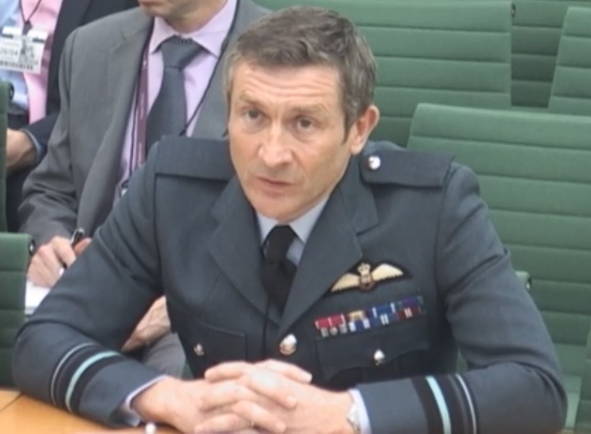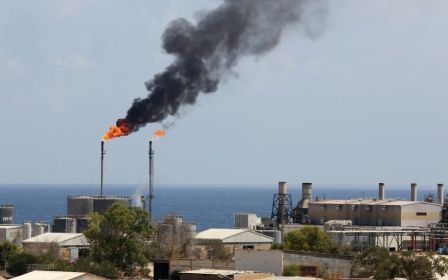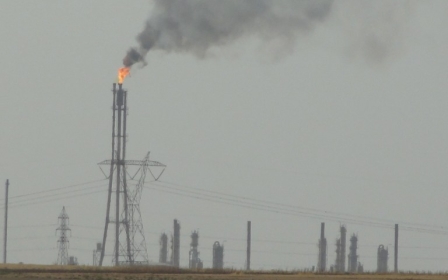IS turning to 'gangster tactics' to replace destroyed oil revenues

The Islamic State's oil industry has been severely hit by coalition bombing but the group is turning to "gangster" tactics, including extortion, to offset its losses, according to the head of British efforts to hit IS finances.
Air Vice-Marshal Edward Stringer told the British parliamentary foreign affairs sub-committee on Tuesday that the US-led coalition has hit the group's ability to produce and sell oil in Iraq and Syria.
However, he said that the group is moving to other forms of revenue to keep its coffers full.
Stringer said the group should still be considered a "pseudo state" in order to counter and defeat it, but he believed the organisation is turning to "gangster" tactics to stay afloat.
He said that previous estimates suggested the IS economy was split 40/40/20 on oil, taxation and criminal activities and donations.
That, Stringer said, has moved towards 20/50/30 after coalition forces focused on destroying oil infrastructure.
"Daesh functions as a pseudo state, and we are engaged in economic warfare," he said. "Daesh will adapt as we adapt."
He said there is evidence of increased extortion of local populations and increased use of protection rackets, adding that he was never convinced "that the criminal income element was so small".
"Daesh is trying to get more hard cash though extortion of the local population," Stringer said. "We are starting to see corruption and embezzlement among senior leaders, suggesting we are having success."
He said that IS operates a "cash economy" and has looted $1bn, which it keeps in "bulk storage" facilities. Coalition strikes in northern Iraq have targeted the stashes, he said, and "we believe we have removed hundreds of millions from circulation".
'Micro' level smuggling
Stringer also said that, contrary to popular belief, much of the group's oil is not smuggled abroad - it is sold inside IS territory.
"The vast majority of oil produced by Isil stays in Isil territory," he said.
"There is evidence of micro-smuggling, but no evidence of large scale oil smuggling. It is not sent to Turkey."
"We believe that one major stream of income is the internal oil market. Local businesses and homes have generators," Stringer said.
This, in turn, enables it to weather the global fall in oil prices, operating a "closed internal market, and if you think of it along the lines of narcotics, if you halve supply you can double the price. Daesh was able to do so".
He said that the campaign has cut IS production of crude by 25 percent from a high of about 30,000 barrels per day, although that was still an estimate.
"We have stopped them getting oil out of the ground and transporting it. We have moved them from moving oil to selling it at the wellhead," he said.
"We attack the wellheads and the refineries and we look at how hard it is to repair those facilities."
He said the coalition has also targeted additives and chemicals that IS needs to refine its oil products, and that what is now being produced is "crude in every way".
However, he admitted that much of the evidence is "second order" and that it is very difficult to "get a grip of that was going on the ground" inside IS territory.
New MEE newsletter: Jerusalem Dispatch
Sign up to get the latest insights and analysis on Israel-Palestine, alongside Turkey Unpacked and other MEE newsletters
Middle East Eye delivers independent and unrivalled coverage and analysis of the Middle East, North Africa and beyond. To learn more about republishing this content and the associated fees, please fill out this form. More about MEE can be found here.




